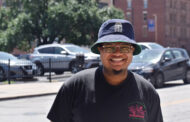Only 5 months after President Obama re-opened diplomatic relations between the U.S. and Cuba, a group of Kansas Citians joined the largest tech delegation ever to visit the communist country.
Five area entrepreneurs joined leaders and other innovators involved with the national tech conference Techweek in an exploratory visit of Cuba’s tech and entrepreneurial community. The three-day visit in November not only offered insight into the Cuban business community, but also allowed 65 entrepreneurs from around the nation to network with one another.
“A really cool part of the mission was to talk with Cuban leaders about the future, and to experience it from a foreign-relations perspective,” said Jason Grill, founder of JGrill Media and a delegate on the Cuban trip. “Techweek put these tech influencers together, which was good for us as Kansas Citians to talk with some of these high net-worth people. Getting in front of those people and talking about Kansas City and connecting with them was a huge plus.”
Techweek, which held its Kansas City conference in September, hosted the trip to Havana, Cuba, to introduce top tech minds to Cuban leaders with the aim of creating a forum for the exchange of culture and ideas. The delegates met with Jeffrey DeLaurentis, chief of mission at the U.S. Embassy in Havana, as well as Cuban politicians, academics and economists to discuss the technology and business community.
Grill said that limited technological advances — especially a lack of pervasive Internet access — has forced Cuban businesspeople to get creative. He added that Americans on trips to Cuba can benefit from that gumption.
“It was shocking to see the entrepreneurial hustle of the Cuban people without even being on the Internet,” he said. “That really forces (Cubans) to be present in conversations. … The entrepreneurial spirit and ingenuity of the Cuban people is impressive. It’s exciting to see the American people be able to now interface with them.”
Ryan O’Connell, national sales manager at YEC, said that he agreed with Grill and added that he was surprised by how many Cubans operated their own businesses.
“Everyone in Havana has a side hustle to sell something,” he said. “Everyone had a hustle and bustle about themselves, which was refreshing to experience and see that type of ecosystem, (going) back to the idea of the main street entrepreneurship as opposed to focusing on highly technical things.”
Blake Miller, partner at Think Big Partners and another delegate on the trip, said that the group was also able to tool around in 1950s convertibles and visit one of Cuba’s most famous cigar factories. Miller recalled Havana’s colorful neighborhoods and friendly townspeople. He also said the group encountered a few Kansas City Chiefs jerseys in Cuba and a Kansas City Royals cap.
Despite the Cuban people’s apparent contentment, Miller said he couldn’t help but notice the negative effects of decades of Communist rule and isolation from many parts of the world, including the United States.
“The Cuban people have a lot of ingenuity, but all this optimism and hopefulness was still overcast by this feeling of being alone,” he said. “You got this feeling that even though they’re hopeful and that things will change to be better, that they’ve always felt alone.”
Miller also observed how Communism has stifled competition in Cuba because many people expect to be given their livelihood from the government. Rundown buildings, for example, exemplified the mindset of people expecting the government to take care of infrastructure.
“It’s not my problem,” he said of the mentality. “It’s someone else’s problem.”
Miller added that it’s a mindset comparable to a manifestation in Kansas City.
“The analogy to the Kansas City ecosystem is that in the last 30 to 40 years we’ve had such a great culture because of guys like Mr. Kauffman, Mr. Helzberg and Mr. Bloch, we’ve had a great philanthropic culture here in Kansas City,” he said. “But because our culture in Kansas City is about giving and philanthropic support, we’ve lost the culture of investment, which is now what our entrepreneurial ecosystem is trying to change.”





































